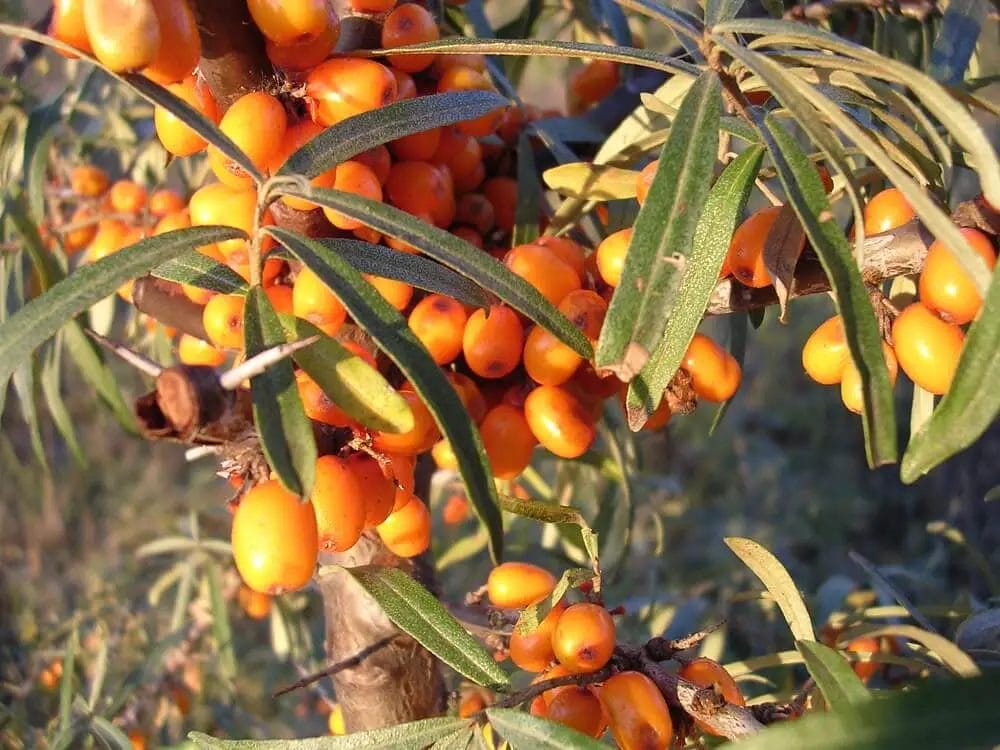Buckthorn is a common name for several species of shrubs and trees that are native to Europe and Asia. These plants have been introduced to North America and other parts of the world, where they have become invasive.
Buckthorn is known for its rapid growth and ability to outcompete native plant species, leading to negative impacts on biodiversity and ecosystems.
It is important to understand whether deer eat buckthorn, as deer are often present in areas where buckthorn is present and they can have a significant impact on plant populations through their feeding habits.

Do Deer Eat Buckthorn?
There have been observations of deer consuming buckthorn leaves and fruit. However, the extent to which deer rely on buckthorn as a food source varies depending on a number of factors.
One factor that may influence deer consumption of buckthorn is the availability of other food sources. If there are other palatable plants present, deer may be less likely to consume buckthorn.
In contrast, if other food sources are scarce, deer may be more likely to turn to buckthorn as a source of nutrition.
The palatability of buckthorn may also play a role in whether deer eat it. Some studies have found that deer prefer the leaves and fruit of other plant species to buckthorn, suggesting that buckthorn may not be a preferred food source for deer.
The stage of growth of the buckthorn plant may also affect its palatability to deer. For example, young, actively growing buckthorn plants may be more palatable to deer than mature plants.
It is worth noting that while deer may consume buckthorn, it is not a dominant food source in their diet. Deer tend to prefer other types of vegetation, and only turn to buckthorn when other options are scarce.

The Impact of Deer Eating Buckthorn
The impact of deer eating buckthorn depends on the extent to which deer rely on it as a food source. If deer are consuming large amounts of buckthorn, it could have negative consequences for the buckthorn population and its ability to spread.
On the other hand, if deer are only consuming small amounts of buckthorn, it is unlikely to have a significant impact on the population. In fact, it may even help to control the spread of buckthorn by limiting its ability to produce seeds.
In terms of the impact on other plant species and ecosystems, deer consumption of buckthorn may be beneficial in some cases. By preferentially consuming other plant species, deer can help to reduce competition for resources and allow other plants to thrive.
However, if deer are relying heavily on buckthorn as a food source, it could have negative consequences for other plant species.
For example, if deer are consuming large amounts of buckthorn, they may not have enough energy to forage for other food sources, leading to a decline in the population of other plant species.
Management Strategies for Controlling Buckthorn
There are a number of methods for controlling buckthorn that do not rely on deer consumption. These include physical removal, chemical control, and the use of herbivores other than deer, such as goats or sheep.
In some cases, deer may be used as a tool for controlling buckthorn. This can be done by manipulating the deer population or by providing incentives for deer to consume buckthorn.
For example, planting preferred food sources near buckthorn stands may encourage deer to forage on buckthorn. However, it is important to consider the potential impacts of using deer as a tool for controlling buckthorn.
If deer are relying heavily on buckthorn as a food source, manipulating the deer population or providing incentives for deer to consume buckthorn could have negative consequences for both the deer and the ecosystem.

Conclusion
In conclusion, deer do eat buckthorn, but it is not a dominant food source in their diet. The extent to which deer rely on buckthorn as a food source depends on a number of factors, including the availability of other food sources and the palatability of buckthorn.
The impact of deer eating buckthorn on the buckthorn population and other plant species depends on the extent to which deer rely on it as a food source.
There are a number of methods for controlling buckthorn that do not rely on deer consumption, and in some cases, deer may be used as a tool for controlling buckthorn. However, it is important to consider the potential impacts of using deer as a tool for controlling buckthorn.
Can deer eat too much buckthorn?
Yes, it is possible for deer to consume too much buckthorn. If deer are relying heavily on buckthorn as a food source, it could have negative consequences for their health and the ecosystem.
Is buckthorn poisonous to deer?
There is no evidence to suggest that buckthorn is poisonous to deer. However, if deer are consuming large amounts of buckthorn, it could potentially lead to malnutrition or other health problems.
Can buckthorn be used as a deer repellent?
There is no evidence to suggest that buckthorn is effective as a deer repellent. In fact, deer have been observed consuming buckthorn in some cases.
Is it beneficial to encourage deer to eat buckthorn?
It is not necessarily beneficial to encourage deer to eat buckthorn. While deer consumption of buckthorn may help to control the spread of the plant, it could also have negative consequences for both the deer and the ecosystem if deer are relying heavily on it as a food source.
Can humans eat buckthorn fruit?
Some species of buckthorn produce edible fruit, but they are generally not considered to be a desirable food source due to their sour taste. It is important to properly identify and properly prepare any wild plants before consuming them.
Additionally, some species of buckthorn contain compounds that can be toxic to humans if ingested in large quantities. It is generally not recommended to consume buckthorn fruit.
